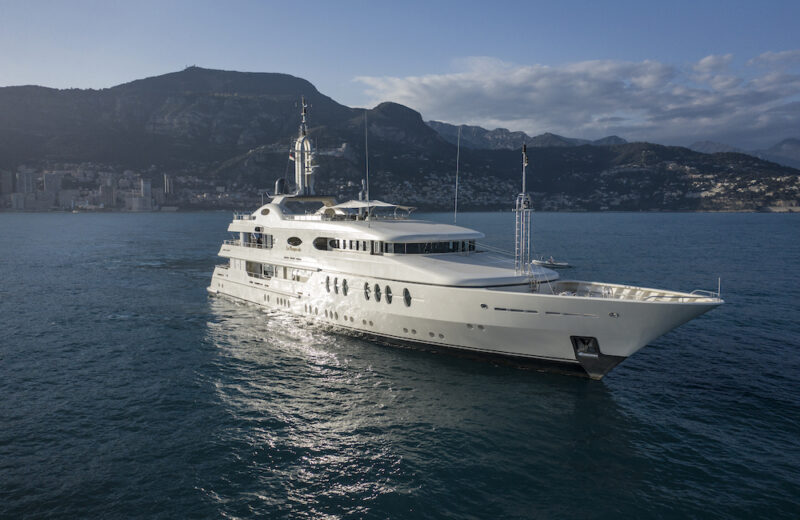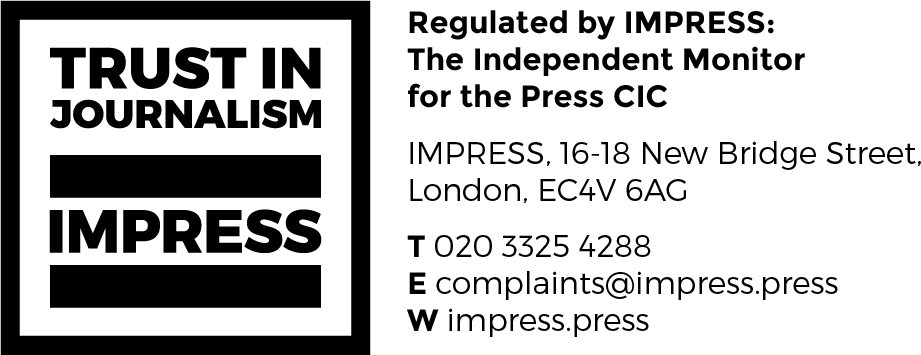Boom time for yacht sales and charter. (But what next?)

Superyacht sales and charter are showing record growth. But for how much longer? And what happens when the market cools? Those were the key questions at Superyacht Investor’s recent Town Hall online meeting dedicated to last month’s Monaco Yacht Show. Also under consideration were the role of bankers in fostering sustainability and EU VAT harmonisation on charters.
Rapidly rising yacht sales and charter demand were evident to everyone. “There’s been a huge uptick in sales,” said Henry Smith, partner and sales broker at Cecil Wright & Partners’ Monaco Office. “So far in the past 12 months, there have been 260 sales of boats over 40m. That compares with 207 the year before and 190 the year before that.” He thought the split between new buyers and established purchasers was about equal.
The perception of yachts as a haven (which can be moved depending on the weather) had prompted people who previously booked two to three weeks charter to consider buying their first yacht, said Smith. Also, the imbalance between rising demand and static or slowly increasing supply was “skewing slightly” the idea of value for some yacht owners.
“Everything is cyclical. So, when this market cools, which is inevitable, you are going to have people who paid premiums for yachts being rather disappointed when it comes to selling after hearing the value has decreased.” Recent financial modelling by Cecil Wright & Partners had revealed “pretty scary” results about which yards performed better than others when it came to retaining value. As expected, superyachts from premium northern European yards retained their value most effectively.
Nevertheless, Smith remained optimistic about the manageable impact of the downcycle. “People have short memories – but not that short. We are not going to see a similar wipe out to the one we saw in 2008/2009,” Smith told attendees. “There will be people hit hard and there will be distressed sales but that happens in every cycle.”
The realisation of mortality (not the availability of money) was the main driver of increased business for James Crew, Close Brothers Aviation and Marine. “Speaking to our clients, it has brought forward their plans to get into boating or to buy another boat – normally a bigger boat but not exclusively so. This [pandemic] has happened so quickly, it has made people rethink their priorities.”
Crew reports new owners entering the market – particularly people who have previously purchased a yacht but, for one reason or another, have taken “a fairly long sabbatical”. Like Smith, Crew believes expectations of yacht values could cause problems when the market cools. “We don’t know what will happen to values. But I’m fearful those owners who came in at the top of the market will have a bit of shock when they decide to sell,” he said. “They may decide it’s too much of a loss and decide to come out of boating.”
Advait Deodhar, sales and charter broker, TJB Super Yachts, joined the Town Hall from Croatia, which enjoys both the lowest VAT rate in the EU (more on this later) and one of the longest charter seasons up to mid-October. This year’s Monaco Yacht Show appeared to attract fewer visitors than in previous years but more who were intent on business, he said. “People have amassed a lot of wealth over the past 12-14 months and want to spend it on boats and travel.” Inevitably, supply and demand will balance out in due course, he said.
At present there was a big shortage of supply, with build slots unavailable until 2023, 2024 or 2025 in the case of some northern European pedigree yards. But that imbalance would ease over time, partly as new owners came to realise the true cost of vessel ownership, Deodhar predicted. “There’s a lot of first-time buyers who are going into it without thinking about the true costs of buying a superyacht – not just the upfront expenses. And some will question whether it is sustainable for them.”
Olivier Blanchet, head of Jet and Yacht Finance, BNP Paribas, noted that supply was trying to keep up with demand. But supply chain challenges were likely to remain a bottleneck for some time. “We have noticed an increase in the number of shipyards – more are now entering the market to serve this demand,” said Blanchet. “But the challenge is that the number of sub-contractors behind the shipyards remains the same. So, we will see bottlenecks and maybe some decrease in terms of quality over the coming year.”
Record (and unsatisfied) demand for new yachts was leading to higher charter rates, speakers agreed. Deodhar said one client who wanted to charter a yacht at the height of the season towards the end of July and August could find nothing available for his €0.25m charter budget. Clients were also chartering vessels for much longer this past summer than in previous seasons.
Questions about sustainability were becoming more important for both new entrants and established owners, said Blanchet at BNP Paribas. Owners need guidance on sustainability topics. “They want to enjoy the yachting life, but they do not want to appear to have a negative impact on the environment,” said Blanchet. “They want to manage their reputations – both their personal and corporate image. That is why the industry – shipyards, brokers, advisers and banks – needs to give guidance in this field.”
BNP Paribas has pledged to support all parties along the value chain who want to make the sustainability changes the industry needs. That means supporting “smart projects” which promote environmental goals at shipyards or projects which a beneficial or environmental impact. “It is a bit more expensive, but that is something the bank is already doing [to promote environmental goals in superyachting].”
Turning to the choppy waters of VAT charges for superyachts sailing in the EU, Miguel Angel Serra, partner, lawyer, economist and real estate agent, Albors Galiano Portales, said recent progress had been made on harmonising rates for charter. The VAT directive enables countries to exclude from their taxable income from charter fees those parts of the charter trip that are in international waters.
“So, before, each and every countries like France, Italy or Malta was implemented its own rule,” said Serra. “But from now on, the EU has clarified the interpretation of the will apply the same rule. If a country you wants to exclude the taxable income of the VAT for the period of time when the yacht sails outside EU waters, it may you can do that, as article 59.bis of the VAT Directive allows it. But that applies only to the time spent outside EU waters. This is the only criteria, countries – you can decide to tax this portion of the trip pay or not.”
The Superyacht Investor Town Hall, Monaco Yacht Show – Soaring demand, took place on September 30th. Watch the Town Hall again here.
Subscribe to our free newsletter
For more opinions from Superyacht Investor, subscribe to our email newsletter.

